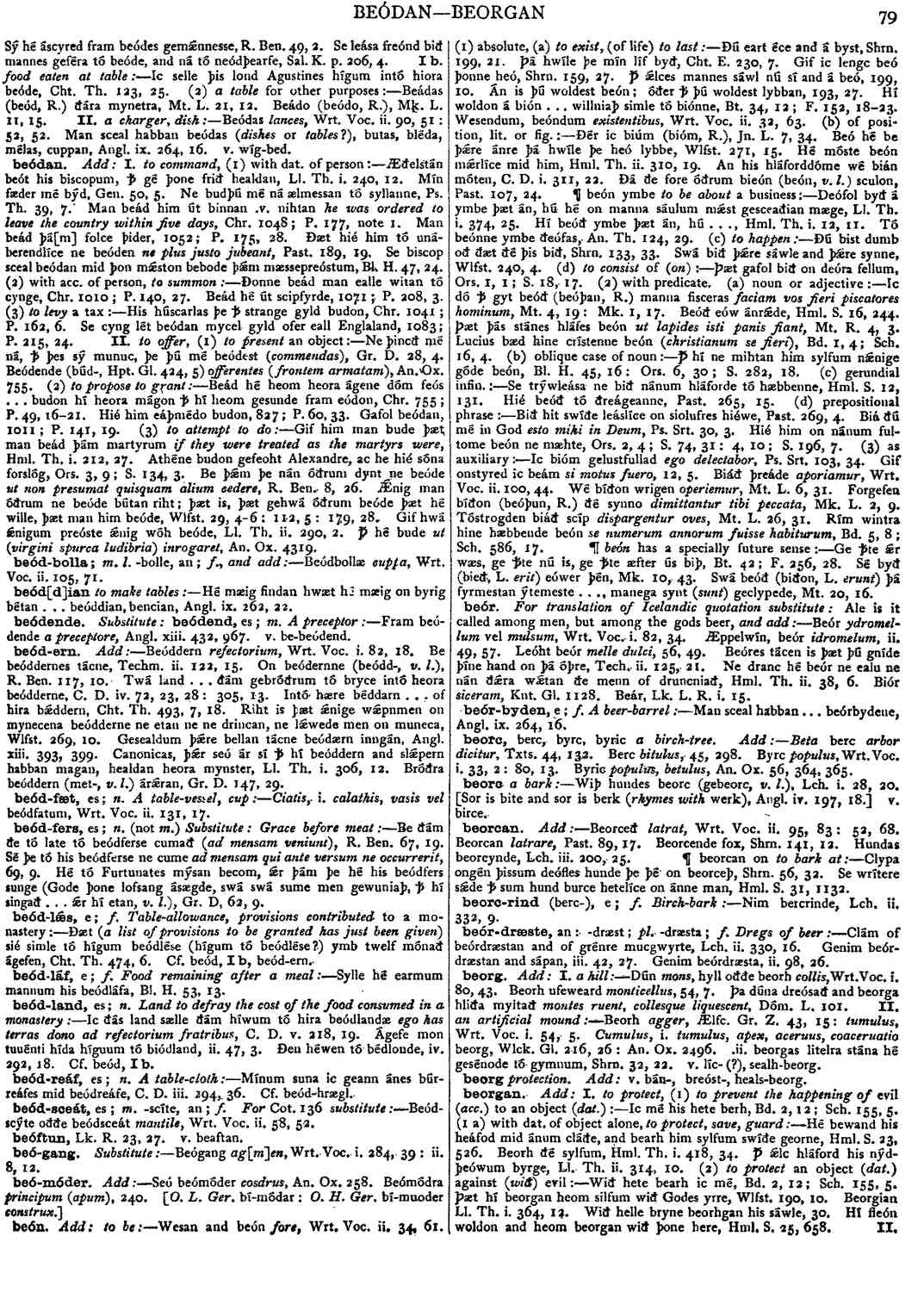beódan
-
Æðelstán beót his biscopum, ꝥ gé þone frið healdan,
- Ll. Th. i. 240, 12.
-
Mín fæder mé býd,
- Gen. 50, 5.
-
Ne budþú mé ná ælmessan tó syllanne,
- Ps. Th. 39, 7.
-
Man beád him út binnan .v. nihlan
he was ordered to leave the country within five days,
- Chr. 1048; P. 177, note l. Man beád þá[m
-
Ðæt hié him tó unáberendlíce ne beóden
ne plus justo jubeant,
- Past. 189, 19, Se
-
Þonne beád man ealle witan tó cynge,
- Chr. 1010; P. 140, 27.
-
Beád hé út scipfyrde,
- 1071; P. 208, 3.
-
His húscarlas þe ꝥ strange gyld budon,
- Chr. 1041; P. 162, 6.
-
Se cyng lét beódan mycel gyld ofer eall Englaland,
- 1083; P. 215, 24.
-
Ne þincð mé ná, ꝥ þes sý munuc, þe þú mé beódest (
commendas
),- Gr. D. 28, 4.
-
Beódende (búd-, Hpt. Gl. 424, 5)
offerentes (frontem armatam),
- An. Ox. 755.
-
Beád hé heom heora ágene dóm feós . . . budon hí heora mágon ꝥ hí heom gesunde fram eódon,
- Chr. 755; P. 49, 16-21.
-
Hié him eáþmédo budon,
- 827; P. 60, 33.
-
Gafol beódan,
- 1011; P. 141, 19.
-
Gif him man bude þæt man beád þám martyrum
if they were treated as the martyrs were,
- Hml. Th. i. 212, 27.
-
Athéne budon gefeoht Alexandra, ac he hié sóna forslóg,
- Ors. 3, 9; S. 134, 3.
-
Be þǽm þe nán óðrum dynt ne beóde
ut non presumat quisquam alium cedere,
- R. Ben. 8, 26.
-
Ǽnig man óðrum ne beóde bútan riht; þæt is, þæt gehwá óðrum beóde þæt hé wille, þæt man him beóde,
- Wlfst. 29, 4-6: 112, 5: 179, 28.
-
Gif hwá ǽnigum preóste ǽnig wóh beóde. Ll. Th. ii. 290, 2. ꝥ hé bude
ut (virgini spurca ludibria) inrogaret,
- An. Ox. 4319.
Bosworth, Joseph. “beódan.” In An Anglo-Saxon Dictionary Online, edited by Thomas Northcote Toller, Christ Sean, and Ondřej Tichy. Prague: Faculty of Arts, Charles University, 2014. https://bosworthtoller.com/39953.
Checked: 0